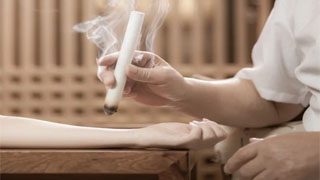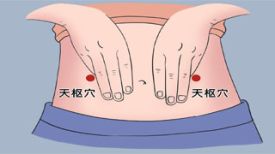
In daily life, we often see some people who are afraid of cold: regardless of spring, summer, autumn, winter, they are prone to cold hands and feet. Even in the hot summer, these people still feel cold all over and wear thick clothes. What situations may cause people to develop this' cold phobia '?
Individuals with yang deficiency are prone to experiencing chills throughout their entire body
Fear of cold is the most common among patients with yang deficiency constitution.
The fear of cold in patients with yang deficiency is often manifested as chills throughout the body, accompanied by symptoms such as fatigue, drowsiness, decreased sexual function, long and clear urine, frequent nocturia at night, and loose stools, and they always feel weak during the day or night.
These patients are usually introverted, calm, with pale complexion, pale tongue, white coating, and weak pulse. At the same time, Yang deficiency in different organs can have different manifestations. For example, if the spleen yang is insufficient, the abdomen is more sensitive to cold, accompanied by decreased appetite, fatigue, and weakness; Individuals with insufficient kidney yang not only have a general fear of cold, but also experience dizziness, tinnitus, and soreness in the waist and knees; If the heart yang is insufficient, there may be a fear of cold in the chest, accompanied by chest tightness, palpitations, etc; Those with insufficient lung yang are prone to back chilliness and cough, and can cough up clear and thin foam sputum; People with deficiency of the Du meridian are prone to symptoms such as fear of cold in the neck and lower back.
People with yang deficiency constitution who are afraid of cold can apply moxibustion to Guanyuan acupoint, Zusanli acupoint, Shenshu acupoint, Mingmen acupoint, etc. in daily life to warm up yang and replenish qi. Daily intake of warm and nourishing foods such as lamb, beef, chicken, yam, millet, ginger, brown sugar, etc.
People with blood deficiency are prone to fear of cold on their hands and feet
Individuals with a blood deficiency constitution are unable to exert a warming effect due to a deficiency in qi and blood, which can lead to symptoms of being afraid of cold. These symptoms are often manifested in the hands and feet, and can be relieved in summer. They may also experience dizziness, fatigue, insomnia, waking up in the middle of the night, palpitations, and other symptoms. This group of people usually have pale or pale complexion, pale tongue, thin white coating, and fine veins.
People with blood deficiency and fear of cold can apply daily moxibustion to Shenshu, Ganyu, Mingmen, Zusanli, Guanyuan and other acupoints to nourish the kidneys, liver, qi and blood. At the same time, massage the Sanyinjiao acupoint, Xuehai acupoint, Taixi acupoint, etc. regularly for 10 minutes at each acupoint, until a slight sour and swollen feeling appears, which can have the effect of nourishing qi and blood.
People with blood deficiency constitution should eat jujube, ass hide glue, black sesame, black beans, black chicken, medlar, longan, spinach, eel, pig liver, duck blood and other blood products every day.
People with yang depression are prone to "cold pain"
Yang Qi mainly warms and nourishes the qi and blood throughout the body. If Yang Qi becomes stagnant and the warming function is obstructed, patients may also experience symptoms of fear of cold, generally manifested as fear of cold in their hands and feet, and sometimes fear of cold in areas such as the head, ears, and face. Symptoms can be mild or severe.
If the yang depression is caused by long-term emotional instability or anger, it may result in fear of cold in the hands and feet, accompanied by dry mouth, bitter taste, chest and rib distension, facial acne, dry mouth, dry eyes, discomfort in the epigastric region, easy vomiting of sour water, menstrual disorders, and facial spots; If the accumulation of phlegm and dampness, as well as the stagnation of yang qi, are caused by long-term alcohol consumption and a preference for fatty and sweet foods, it may lead to a fear of cold in the back and chest, accompanied by obesity, chest tightness, excessive phlegm, bloating, decreased appetite, and thick tongue coating; If it is caused by stagnation of yang qi due to internal stagnation of blood stasis, it is often caused by long-term depression, which can manifest as fear of cold in multiple parts of the body, accompanied by local pain, lumps, etc., often with pain fixed in place. In winter, the fear of cold will be more pronounced. These patients usually have purple and dark tongue texture, and there are many bruises and spots on the tongue.
For those with yang depression and fear of cold, moxibustion can be used at the liver Yu point, spleen Yu point, Yin Ling Quan point, Guan Yuan point, Zhi Yang point, etc., which can soothe the liver, relieve depression, strengthen the spleen and dispel dampness.
People with yang depression and fear of cold can consume medicinal and edible items such as roses, Poria cocos, winter melon, tangerine peel, millet, hawthorn, etc. in their daily lives.
People who are afraid of cold should develop the following good habits
Regardless of the type of people who are afraid of cold, they should strengthen their physical exercise. On weekdays, one can engage in appropriate exercises such as practicing Tai Chi, the "Six Character Formula", and the Eight Section Brocade to invigorate the Yang energy and clear meridians and collaterals.
At the same time, in daily life, attention should also be paid to regulating emotions, maintaining a happy mood, and engaging in some enjoyable physical and mental activities, such as singing loudly, to promote lung qi and facilitate the promotion of yang qi.
In addition, people who are afraid of cold should pay attention to moxibustion health care. Moxibustion has excellent effects on warming yang, promoting blood circulation, dispelling dampness and dispelling cold, and regulating and tonifying organs, making it very suitable for daily use by people who are afraid of cold. During moxibustion, it is advisable to focus more on acupoints on the Yang meridian, which has a good effect on warming the Yang and promoting meridian circulation.
For those who are afraid of cold, regardless of the reason, they should eat less cold food in their diet, take daily measures to keep warm, strengthen their guard, and avoid feeling cold.


